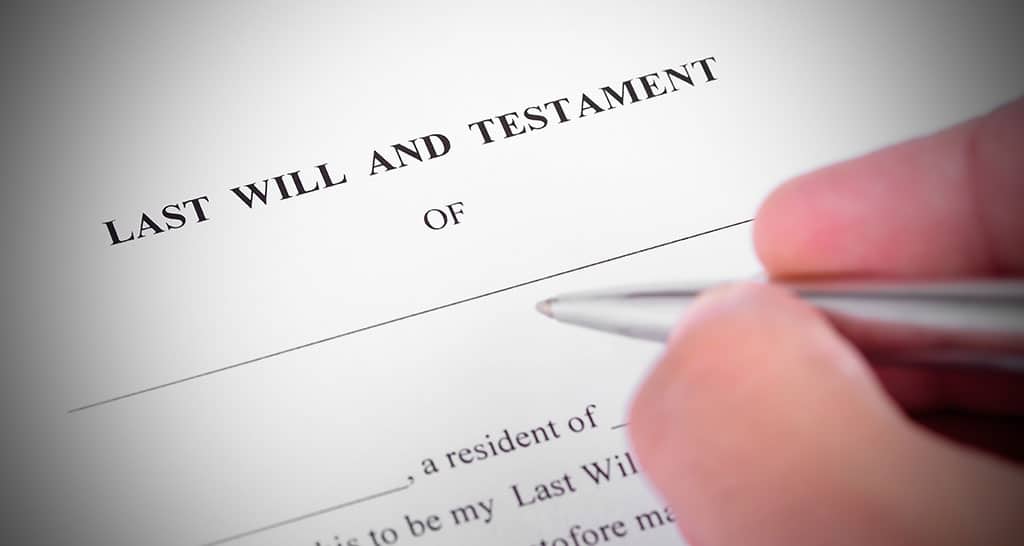Estate Planning Laws – Establishing a testamentary trust through your Will
What is a Will with a testamentary trust? A Will sets out the last wishes of a deceased person. Meanwhile, a testamentary trust is only established through a Will and does not come into effect until after death. Testamentary trusts can help provide asset protection, tax benefits, and offer flexibility in asset distribution to your beneficiaries.
Once the Will-maker passes away, his/her executor will be responsible for contacting a trustee and have them set up the trust and transfer assets into it. The trustee will then manage the trust assets and distribute them to the beneficiaries in accordance with the terms of the trust deed. Read this article to learn more about how a Will with testamentary trust works.
Key takeaways:
A testamentary trust is a trust that is established through a Will and does not come into effect until after the testator’s death.
- Testamentary trusts can provide asset protection, tax benefits, and flexibility in how beneficiaries will receive their inherited assets.
- There are various types of testamentary trusts.
- To create a testamentary trust, the testator will need to include a trust deed in their Will. This deed will set out the terms of the trust, including the beneficiaries, the trustee, and the powers of the trustee.
- Testamentary trusts can be complex, so it is important to seek legal advice when setting one up.
How to make a Will with a Testamentary Trust?
To make a testamentary trust, you need to include specific provisions in your Will. You will need to appoint a trustee or trustees. They are responsible for managing the trust and distributing its assets to the beneficiaries. The trustee can be an individual or a company, and it is essential to choose someone you trust to carry out your wishes.
You should create an inventory of the value of all assets held including property, cash, income derived from business and shares. Here is an example of a Will with testamentary trust provision:
“I, [your name], of [your address], hereby appoint [trustee’s name] of [trustee’s address] to be the trustee of the testamentary trust established by this Will. The trustee shall hold the trust property in trust for the benefit of my children, [child 1’s name], [child 2’s name], and [child 3’s name], in equal shares.
The trustee shall have the discretion to distribute the trust property to my children at any time, in such amounts and proportions as the trustee deems appropriate. They may also retain the trust property and distribute the income from the trust property to my children on a regular basis.
The trust shall terminate when all of my children have reached the age of 25. At that time, the trustee shall distribute the remaining trust property to my children in equal shares.
If any of my children die before the termination of the trust, their share of the trust property shall be distributed to their issue, per stirpes.”.
Will with a Testamentary Trust – key advantages and disadvantages
Advantages:
- Control: Testamentary trusts can be structured to provide control over the assets held and income distribution to beneficiaries for up to 80 years.
- Asset protection: Testamentary trusts can protect assets from remarriage, de facto relationships, family law litigation, third-party claims, and bankruptcy.
- Income and Capital Gains Tax Advantages: A Will with testamentary trust can be structured to reduce income and capital gains tax for beneficiaries.
- Preservation of Government Benefits: Testamentary trusts can preserve government benefits for beneficiaries.
- Superannuation and Insurance Proceeds: Testamentary trusts can be used to manage superannuation and insurance proceeds.
Disadvantages:
- Complexity: A Will with testamentary trust can be complex. Therefore, it is important to seek legal advice from an estate lawyer when setting one up.
- Cost: There may be ongoing administrative costs associated with maintaining a testamentary trust, such as accounting and legal fees.
Frequently Asked Questions
Q: What is the difference between a testamentary trust and a living trust?
A: A testamentary trust is a trust that a Will establishes, and it does not come into effect until after your death. A living trust is a trust that is established during your lifetime.
Q: Who should consider establishing a Will with testamentary trust?
A: A Will with testamentary trust may be suitable for a wide range of people, including:
- Parents with young children: A testamentary trust can provide financial support for your children until they reach a certain age or until they are financially independent.
- People with multiple beneficiaries: A testamentary trust can help to distribute your assets to your beneficiaries in a flexible and efficient way.
- People with complex estates: A testamentary trust can help to structure a deceased estate in a tax-efficient way.
Q: How do I choose a trustee for my testamentary trust?
A: When choosing a trustee for your testamentary trust, you should consider the following factors:
- Honesty and integrity: The trustee should be someone who is honest and trustworthy.
- Financial acumen: The trustee should have the financial skills and knowledge to manage the trust assets.
- Availability: The trustee should be willing and able to devote the necessary time and attention to managing the trust.
You may choose to appoint an individual trustee, such as a family member or friend, or you may choose to appoint a corporate trustee, such as a trust company.
Estate Planning Advice and Expertise
Testamentary trusts can be a complex and important part of estate planning. It is important to seek legal advice when setting up a testamentary trust to ensure that you structure it in a way that meets your specific needs and goals. Wills and Estate lawyers can help you to:
- Choose the right type of testamentary trust for your circumstances and family members;
- Draft a trust deed that is clear and concise that protects valuable assets from income tax;
- Appoint a suitable trustee or trustee company;
- Ensure that the trust is tax-efficient;
- Check if it is wise to create multiple testamentary trusts for the deceased’s assets;
- Ensure your Will is well-drafted with a tax effective method;
- Pay tax effectively and legally;
- Help beneficiaries pay any income generated tax by the deceased’s estate.
Ezra Legal is a leading law firm with extensive experience in estate planning and testamentary trusts. We can help you create a testamentary trust that caters to your specific needs. Our team can ensure that asset distribution for a person takes place in accordance with their wishes.
Contact us today if you want to draft a Will with a testamentary trust.
For more information and expert advice, ask to speak to an estate planning lawyer at Ezra Legal on (08) 8231 6100 or email reception@ezralegal.com.au
For information on the range of estate planning services that we provide at Ezra Legal, head to:
Michael Fabbro
Principal
Ezra Legal



